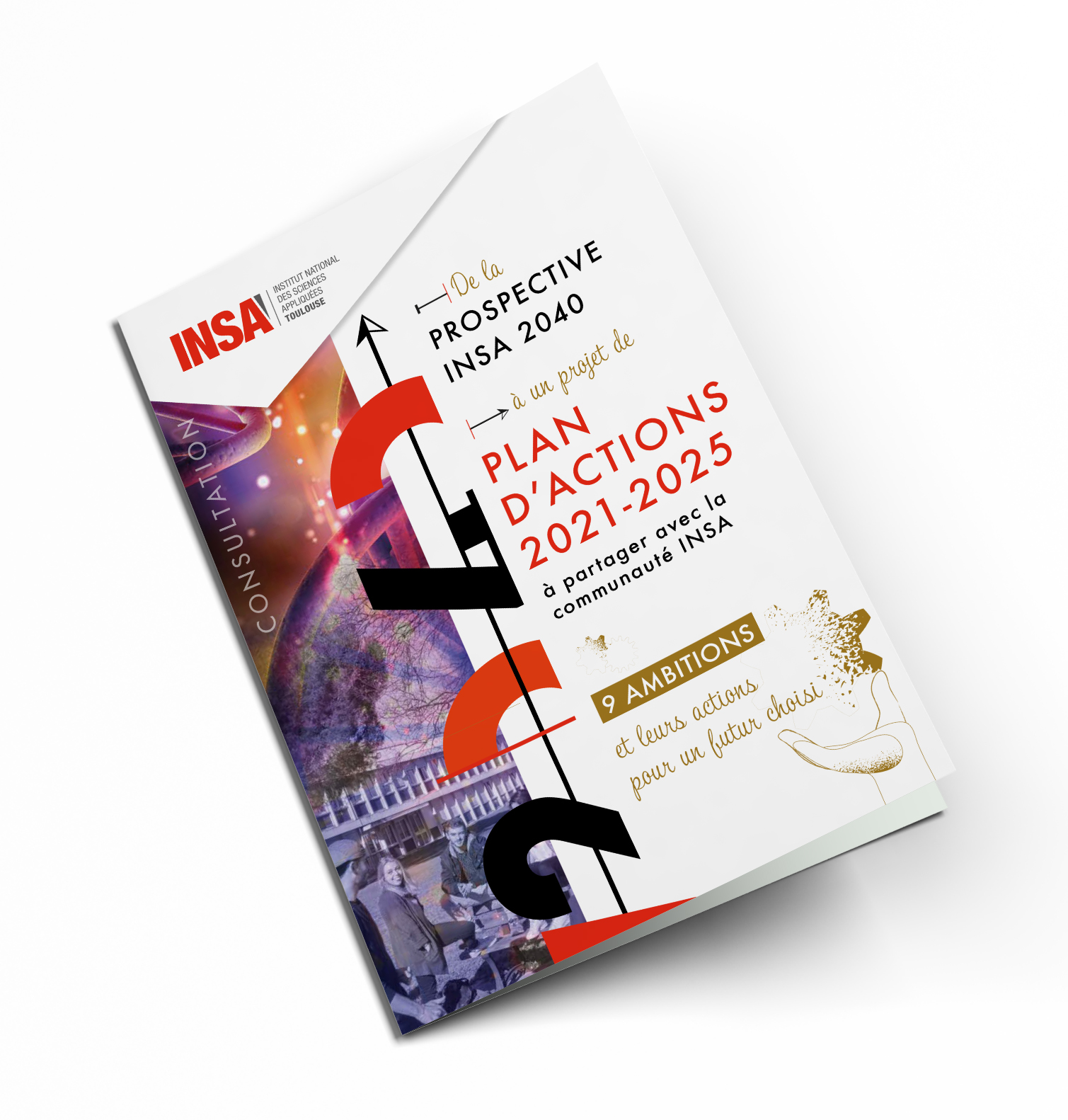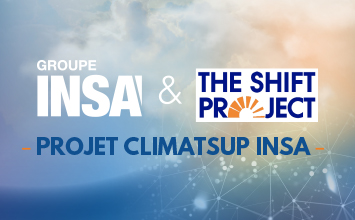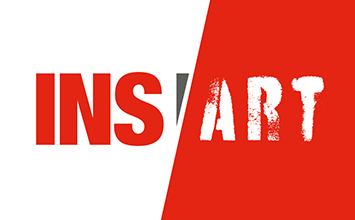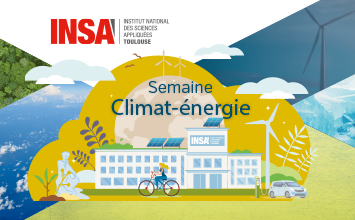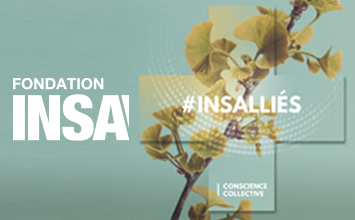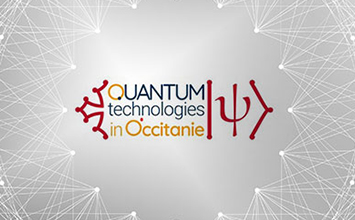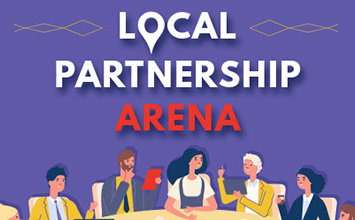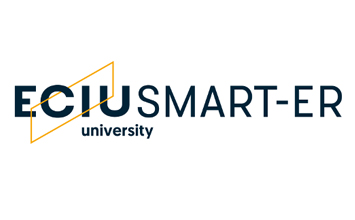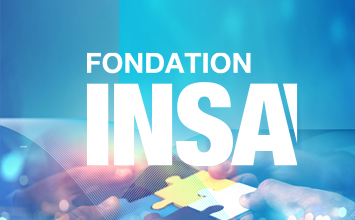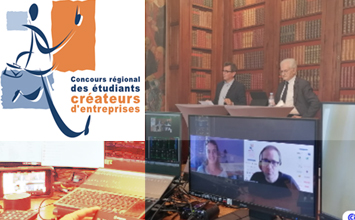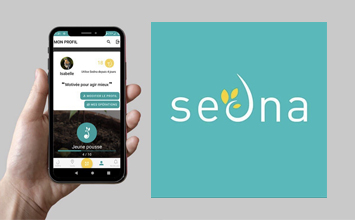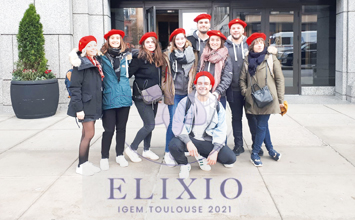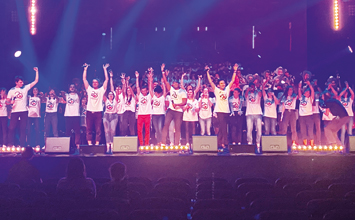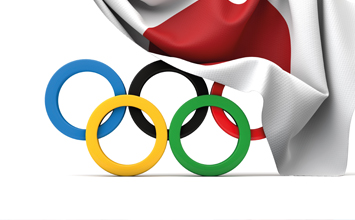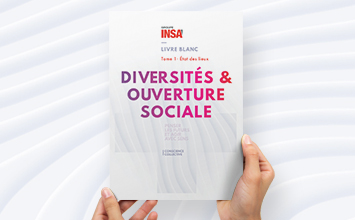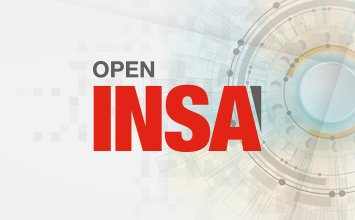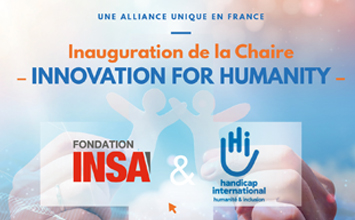
Editorial

Following a hectic period that spanned the last few years of development of educational and research projects, the modernization of our public policies, the internal and external growth of the INSA Group and the Université Fédérale de Toulouse, and the enhancement of our attractiveness, we devoted the year 2021 to consolidating our achievements and ongoing transitions. We also focused on the well-being of our community, the transformed inclusiveness of the INSA model, and on securing our financial future.
The contributions of the 2040 Prospective approach and the ecological, digital and social transitions in terms of education, research and administration must be clearly articulated in the coming years. This implies making choices together for sustainable activities and in a quality environment.
The year 2021 has thus been devoted to collectively defining the major projects for the period 2021–2025 within our institution and, in our larger ecosystem, to building a project for the institutional structuring of the Toulouse academic site and to asserting the development of the INSA Group.
For the coming year—in addition to overhauling our educational offer to address climate–energy, digital and social issues—the major challenge for the INSA Group will be to redefine its social inclusion model. In this regard, too, we shall embrace our differences to redefine access to our schools for students from underprivileged backgrounds, with the same requirements for academic excellence and the same guarantee of success and social integration.
Bertrand Raquet
Director
An institute of higher education and research
The Institut National des Sciences Appliquées de Toulouse, a multidisciplinary and international engineering institute reputed for the excellence of its 5-year educational program, is represented by more than 18,000 alumni across all economic sectors. INSA Toulouse is also known for the quality of its research, which ranges from fundamental research to technology transfer and addresses the major societal issues of the 21st century.
INSA TOULOUSE
- 549 engineering degree graduates
- 76 PhD graduates
- 50% of students living on campus
- €59.5M: INSA’s consolidated expenditures
- 673 staff members
Engineers and doctors trained to innovate
Training engineers and doctors in science and technology takes five and eight years respectively.
The INSA educational model has been built over a long period of time, using pluralist pedagogies adapted to a wide range of learners. Now and in the future, INSA Toulouse promotes specialized degrees to facilitate the sustainable transformation of the socio-economic world, in line with the challenges of the 21st century.
In addition to its associated disciplinary strengths, the learning approaches in an interdisciplinary context and novel combinations with the humanities and social sciences will prove decisive in shaping the scientific leaders that will advance our societies.
Key figures
3,297 students enrolled
including 2,769 engineering students
37% female students
29% scholarship holders based on social criteria
21% international students
240 PhD students
More than 400 first-year students were introduced to the ‘climate mural’ — a scientific, collaborative and creative workshop that provides a fun way to raise awareness on climate change.
For an impactful research
Research departments continuously contribute to scientific knowledge, education, and the socio-economic environment, in particular on the five societal issues around which INSA has structured its strategy.
Under the supervision of scientific directors, science is developed by bringing together teachers and research staff, researchers and teacher-researchers from other universities affiliated with the Université Fédérale de Toulouse Midi-Pyrénées, research organizations and the other schools of the INSA Group.
Fundamental research and applied research coexist in perfect harmony, drawing on each other. Under the supervision of the SAIC and the R&D subsidiary INSAVALOR, no fewer than 135 new contracts were signed in 2021 with partners from all over the socio-economic world.
5 societal issues
- Global health
- Digital societies
- Mobility and infrastructures
- Energy transition
- Environmental transition
Key figures

8 research centers under supervision or under agreement
3 research support units
2 technology resource centers
2 research federations
Creating other forms of mobility
INSA Toulouse encourages its students and researchers to open up to the world by including a compulsory experience abroad in their training, by creating new double degrees and specialized programs for researchers, by adhering to the Erasmus Charter for Higher Education, and by hosting a large proportion of international students.
Students can thus prepare themselves for the intercultural exposure they will experience in the professional world—they spend 21 weeks abroad on average (academic stay or internship) and interact with 76 different nationalities on campus, where more than a fifth of the students are foreign.
Key figures

815 minimum TOEIC score (B2+ level) for engineering students
21% foreign students
(37,6% of whom are women and 19% new entrants in the first year)
19% of engineering graduates in 2021 are international students
Top 5 destinations chosen by our students:
Spain
Norway
Sweden
Canada
United Kingdom
76 nationalities on campus (from Europe, Africa, America, and Asia)
40 first-time international students in international programs
Renewed collaborations with the socio-economic world
INSA Toulouse has a long tradition of collaboration with the business world, noticeable both in its educational programs—in which professionals are involved—and in the R&D projects undertaken with laboratories.
The Institute continuously fosters these relationships and collaborations through a Corporate Relations Department that organizes, supports and facilitates these dynamics, as well as through four research chairs, the INSA Toulouse Foundation and the INSA Group. The latter has launched the Alliances program to bring science to the forefront of societal commitment.
Organized meetings between students and industry professionals, leadership training programs and scholarships to support young INSA entrepreneurs are all concrete examples of the collaborations developed with the socio-economic world.
Key figures

A minimum of 36 weeks’ internship
– 44 weeks on average –
20% of courses taught by industry professionals
€620,982: Apprenticeship tax raised from 383 companies
Fundraising
INSA Toulouse Foundation in 2021
€576,058
In 2021, the Union Cépière Robert Monnier (UCRM), INSA Toulouse and the sponsor GA Smart Building kickstarted this new form of local partnership: the INS’ACCOMPAGNE Alliance.
In this context, the Centre Gaston Berger promotes disability awareness training for students.
Profiles tailored to the business world
In less than six months after graduating, 99% of INSA graduates sign a contract and start working in a wide range of fields, from consulting and engineering to research.
The widespread recognition that INSA receives from the business world can be explained by the strong relationships the school has nurtured throughout the years, shaping profiles that meet the current and future needs and expectations of the business world.
Top 5 fields of professional activity in companies
- Consulting, design and engineering
- Computer science and information services
- Construction and public works
- Energy
- Scientific research and development
Key figures

Gross salary (including bonuses)
€37,500 / year
99%
of graduates found a job less than 6 months after graduation
85%
of graduates are satisfied or very satisfied with their job
Learning to innovate
INSA Toulouse promotes creativity and innovation at the service of entrepreneurship throughout the education of its engineering and doctoral students.
In addition to the various programs included in the curriculum—which range from awareness to expert support—support mechanisms such as the National Student–Entrepreneur Status also exist.
One of the highlights of 2021 was the completion of IoT Valley’s Entrepreneurial Start-up Support Program (Do It Ocracy) by two INSA students.
Key figures

40 students were granted the SNEE (National Student Entrepreneur Status) including 3 students enrolled in D2E (Student Entrepreneur Degree)
3 students obtained their D2E (Student Entrepreneur Degree) delivered by the Université de Toulouse
2 5th-year students attended IoT Valley’s Entrepreneurial Start-up Support Program (Do It Ocracy) in 2020-21
5 4th-year students involved in 5 different projects attended the program Les Entrep’ Occitanie-Garonne alongside students from other schools in the region.
with
3 projects receiving awards at the regional level
A team including Laurie Battini (4th-year Civil Engineering student) and students from EI Purpan and ENSA Toulouse won 2nd prize in the competition, worth €3,500.
Maraîchers du Ciel™ makes it possible to use hypermarket roofs for planting vegetable gardens to be sold directly in the store.
2.Stream.art
A team including Eliott Doutriaux, Thomas Berton, and Axel Jorge (all three 4th-year Automatic Control and Electronics students) came in 6th (€1,000).
Stream.art aims to reconnect dematerialized art with their physical exhibition.
Eco-citizen actions are rewarded with a virtual local currency, the Seed, which is only rewarded and exchanged for actions that promote local food networks and respect for the environment.
https://sedna-app.com/
Thriving on campus
Thriving on campus, creating, sharing… INSA Toulouse provides excellent conditions for studying and living on campus through its many facilities: a “learning center” library, sports facilities, restaurants and residences, in addition to association premises that offer students the opportunity to shine or to reinvent the world on campus.
These opportunities have enabled two students to shine at the Tokyo 2020 Summer Olympics.
Key figures

A campus of nearly 22 ha
1,636 dorm rooms
75 student clubs
Their goal? To create a sustainable, synthetic biotechnology system (a microbial consortium) capable of reproducing the scent of violets.
La vie du campus en images
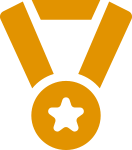
An evolving group
The INSA Group—chaired by Bertrand Raquet—comprises 7 schools in France, an international INSA in Morocco, and 6 partner schools. Each INSA is a public education and research institution that relies on a three-dimensional development approach: at the local level through its site, at the national level through the INSA Group, and at the international and European level through the ECIU University.
In a world in transition driven by increasing complexity, the INSA Group reasserts its commitment to promote an inclusive model where science, technology and humanities blend together, are better shared, and serve a less fragmented society and a healthier economy in environmentally preserved territories. The INSA Group undoubtedly faces both strategic and international challenges.
Like the year before, 2021 proved to be challenging in many ways. In spite of everything, our projects continued and new ones were born through the strength and commitment of the community.
Key figures

15,878 regular engineering students
18.9% foreign students
30.4% scholarship holders
34.7% female students
14.7% in apprenticeship
85 engineering departments
A site policy under development
The Université Fédérale de Toulouse Midi-Pyrénées is an organization that brings together 31 higher education and research institutions from the Academy of Toulouse.
Its mission is two-fold: to work with its members to promote the influence of the university as a whole and place it at the highest academic and scientific levels internationally, and to foster the hosting and life conditions of its French and foreign students and researchers.
Key figures

31 member institutions, including
23 higher education institutions,
1 university hospital, and 7 research institutes
145 research laboratories in interdisciplinary fields
17,000 staff members
More than 100,000 students
32,000 graduates each year
- 1) To create, support and promote a distinct academic identity through targeted incentives that are internationally visible and/or that create new interactions between local partners.
- 2) To undertake a proactive institutional transformation aimed at creating a world-class research university. In this scenario, the site’s academic identity is built around three key societal challenges aligned with the priorities of the local private and public sectors, and for which our community has developed renowned strength and credibility:
- understanding and fostering good health and well-being;
- comprehending global changes and their impact on societies;
- accelerating sustainable transitions (mobility, energy, and industrial resources and transformations).
Each strategic orientation is thus associated with actions undertaken by the institutions and disseminated at the site level by the University of Toulouse, who can also lead it on behalf of its members. This goal is a key factor in the international attractiveness of the Toulouse site and demonstrates its commitment to addressing the major societal challenges of a globalized world.
For further information, please visit https://www.univ-toulouse.fr/ouverture-sur-monde/soutien-aux-projets-europeens



